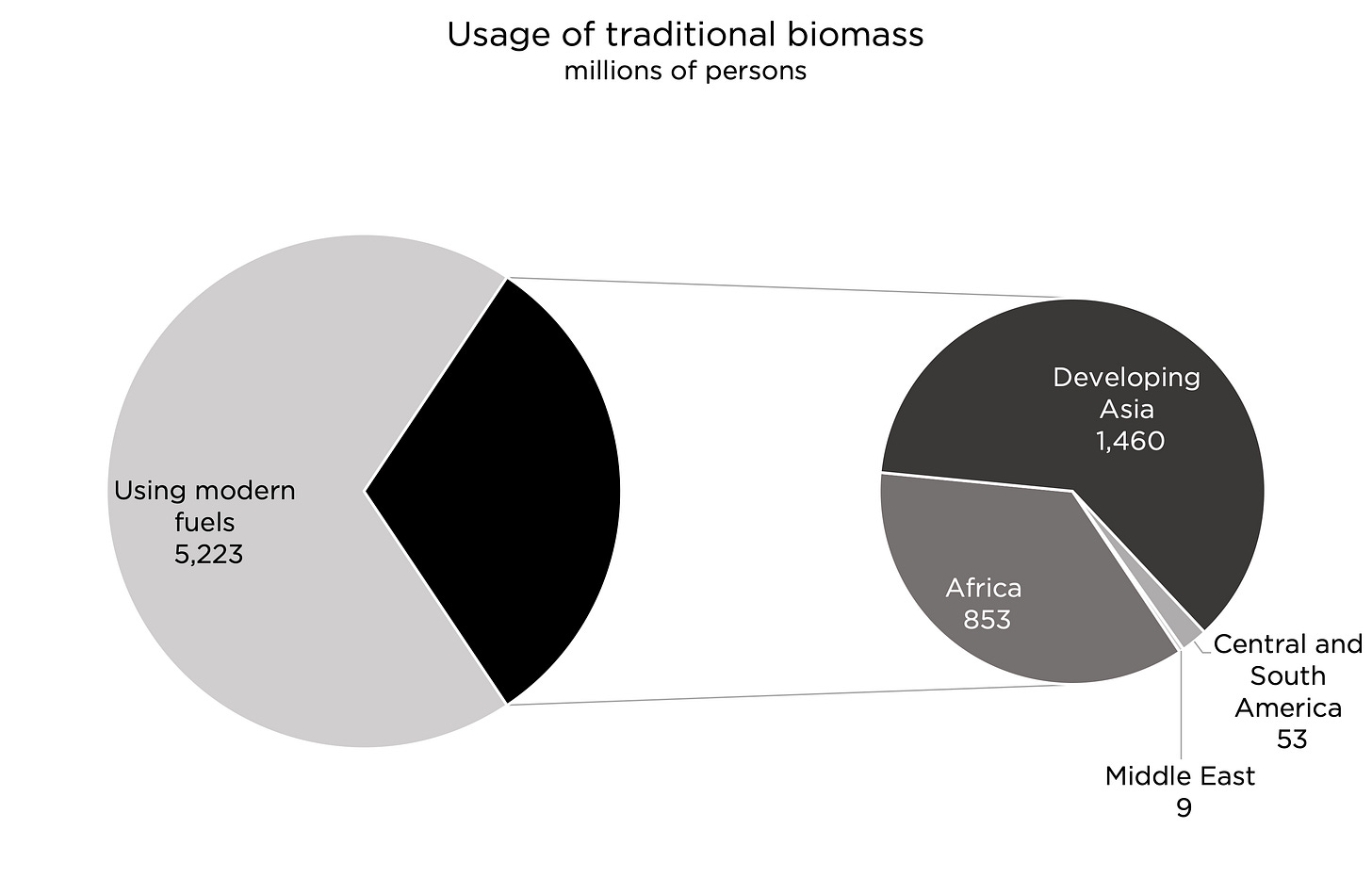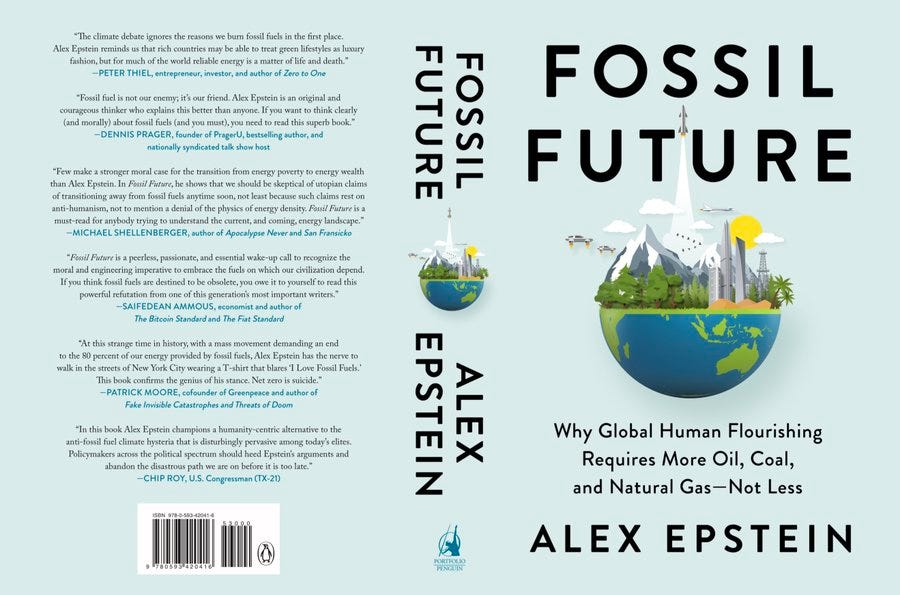Earth Day truth: Fossil fuels make Earth BETTER
Fossil fuels are making Earth a better and better place by providing uniquely low-cost, reliable energy to billions of people--and are needed by billions more. We need a Fossil Future.
Contrary to rhetoric that we've “destroyed the planet,” the world has never been a better place for human beings to live. Life expectancy and income have been skyrocketing, with extreme poverty (<$2/day) plummeting from 42% in 1980 to <10% today.1
A root cause of today's amazingly livable world is fossil fuel. Low-cost, reliable energy enables us to use machines to be productive and prosperous. And only fossil fuels (80% of energy) provide low-cost, reliable energy for all energy needs on a scale of billions of people.2
Fossil fuels have actually made us far safer from climate by providing low-cost energy for the amazing machines that protect us against storms, protect us against extreme temperatures, and alleviate drought. Climate disaster deaths have decreased *98%* over the last century.3
Fossil fuels' CO2 emissions have contributed to the warming of the last 170 years, but that warming has been mild and manageable—1° C, mostly in the colder parts of the world. And life on Earth thrived (and was far greener) when CO2 levels were at least 5X higher than today's.4
Solar and wind can't come close to replacing fossil fuels. They only provide electricity (20% of energy use)—and they don't even do that well. Because solar and wind are unreliable, they don't replace reliable power plants—they add to the cost of reliable power plants.5
Billions of people desperately need low-cost, reliable energy, which for the foreseeable future largely needs to come from fossil fuels. 3 billion people use less electricity than a typical American refrigerator. 1/3 of the world uses wood and dung for heating and cooking.6
The world needs to continue and expand its massive use of fossil fuels, while ensuring we have the freedom necessary for truly cost-effective alternatives to emerge. E.g., we need to decriminalize reliable, non-carbon nuclear energy.
I prove this definitively in Fossil Future.
“Energy Talking Points by Alex Epstein” is my free Substack newsletter designed to give as many people as possible access to concise, powerful, well-referenced talking points on the latest energy, environmental, and climate issues from a pro-human, pro-energy perspective.
Reminder: Preorder Fossil Future and get access to exclusive conversations with Peter Thiel and Palmer Luckey.


PS If you like Twitter, please reply to, retweet, or quote-tweet my thread based on this article.

Popular links
EnergyTalkingPoints.com: Hundreds of concise, powerful, well-referenced talking points on energy, environmental, and climate issues.
My books: The Moral Case for Fossil Fuels and Fossil Future (comes out 5/24/22).
For every million people on earth, annual deaths from climate-related causes (extreme temperature, drought, flood, storms, wildfires) declined 98%--from an average of 247 per year during the 1920s to 2.5 in per year during the 2010s.
Data on disaster deaths come from EM-DAT, CRED / UCLouvain, Brussels, Belgium – www.emdat.be (D. Guha-Sapir).
The decadally smoothed data from the UK Met Office HadCRUT4 dataset shows an increase of 0.974°C between 1850 and 2019.
UK Met Office HadCRUT4 dataset
“The best estimate of CO2 concentration in the global atmosphere 540 million years ago is 7,000 ppm, with a wide margin of error.”
Patrick Moore - THE POSITIVE IMPACT OF HUMAN CO2 EMISSIONS ON THE SURVIVAL OF LIFE ON EARTH
Plot data from Bundesnetzagentur - SMARD
Public generation of electricity was over 488 terawatt-hours in Germany for 2020, solar and wind combined generated over 37%. In 2002 they generated just over 3%.
Fraunhofer ISE energy-charts.de
German household electricity prices have more than doubled to over 0.3€ per kWh ($0.35 per kWh depending on currency exchange rate) since 2000 when the modern renewable energy law started to massively incentivize solar and wind capacity on the German grid.
BDEW Strompreisanalyse Jul 2021 p. 7
The average US household price in 2020 was $0.1315 per kWh.
U.S. Energy Information Administration Electric Power Annual table 5a
Increasingly, Germany depends on interconnections with neighboring countries. In 2020 the country experienced a sharp increase in electricity imports, while still massively exporting solar and wind overproduction.
Reuters - German power export surplus shrank 46.2% in 2020










Dr Tim Ball - Historical Climatologist
<www.generalistjournal.com>
Book: ‘The Deliberate Corruption of Climate Science’
Book: ‘Human Caused Global Warming, the Biggest Deception in History’
https://www.technocracy.news/dr-tim-ball-on-climate-lies-wrapped-in-deception-smothered-with-delusion/
https://www.youtube.com/watch?v=tPzpPXuASY8
Alex, I'm paying for the subscription to YOUR substack. More frequent content would be appreciated.